A new Federal Ministry announced. Who is responsible for housing?
01/06/2022 • Jemima Mowbray
The Albanese Labor Government this week announced their new cabinet line up, with 19 MPs and 4 Senators included in the new 23 person cabinet. Media reports have highlighted the diversity and gender balance of the new Ministry, with a record number of women in the cabinet (10), and the inclusion of two Muslim Ministers. The new Cabinet has already sat down for their first meeting - it seems they are keen to get started!
So, here's our quick rundown of the new Ministers responsible for housing and other portfolios relating to renting. We also foreshadow what we should expect from the new Ministers, providing a brief overview of the commitments made by Labor in relation to housing in the lead up to the election.
Note: some of the detail about the portfolios - i.e. responsibility for certain programs or Commonwealth agencies - may change in the coming weeks as any changes to ‘machinery of government’ are released. We'll update this page if any relevant changes are announced.
Minister for Housing, Minister for Homelessness: Julie Collins MP
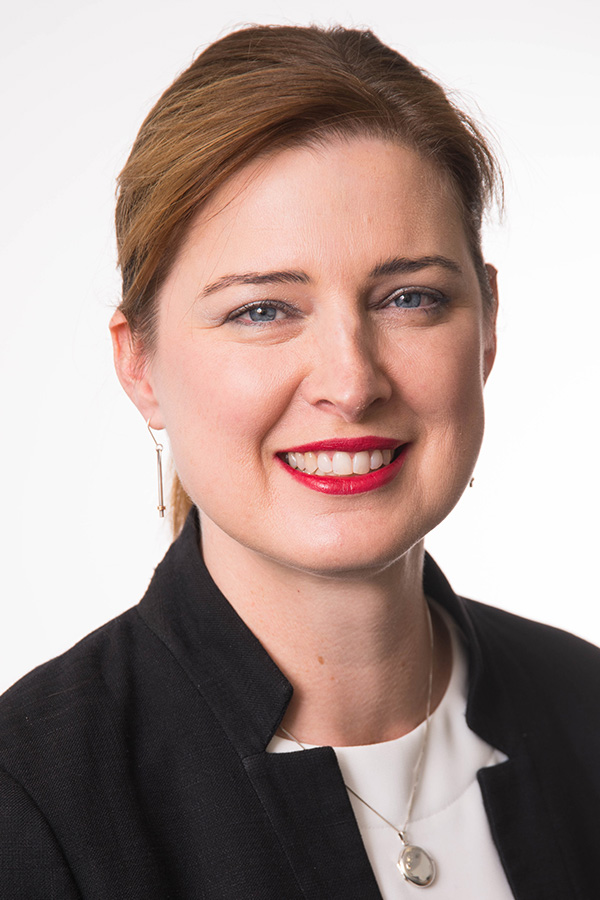
Julie Collins MP
Image credit: alp.org.au
Julie Collins, the Member for Franklin in Tasmania, is the new Minister for Housing and Minister for Homelessness. A member of the Labor Left faction, she's been in the House of Representatives since 2007. She previously held the same role in 2013 and, in the Gillard government, was the parliamentary secretary for community services and eventually minister for community services.
The Housing and Homelessness portfolio has now been promoted into Cabinet, a positive reflection of the priority the new government places on this. We hope it’s also recognition of the critical importance of the role the Commonwealth government can play in ensuring access to safe, secure and genuinely affordable homes for everyone - including renters!
Jason Clare, as Labor’s Shadow Minister for Housing in opposition, made a number of housing policy commitments during the 2022 Federal election. Labor promised if elected they would establish a $10 billion Housing Australia Future Fund to build 30,000 social and affordable homes and help reduce homelessness across Australia. Over the first five years they committed the Fund would:
- Build 20,000 new social housing properties, including 4,000 homes for women and children fleeing domestic and family violence and older women on low incomes who are at risk of homelessness;
- Build 10,000 affordable homes for frontline workers;
- Provide $200 million for the repair, maintenance and improvements of housing in remote Indigenous communities;
- Invest $100 million in crisis and transitional housing for women and children fleeing domestic and family violence, and older women on low incomes who are at risk of homelessness; and
- Invest $30 million to build housing and fund specialist services for veterans who are experiencing homelessness or at-risk of homelessness.
They also committed to establishing a National Housing Supply and Affordability Council, to be advised by experts from across finance, economics, urban development, residential construction, urban planning and social housing sectors. The Council will be responsible for reporting on the number of new social and affordable homes being built annually and advising strategies for boosting the construction of social and affordable housing.
With Clare taking up the Education portfolio, implementation of these commitments now falls to Minister Collins. In March 2021, the Australian Labor Party committed to working with the state and territory governments, local government and experts in the housing sector to develop and implement a National Housing and Homelessness Plan in government. One of Minister Collins' first tasks will be overseeing the development of a National Housing and Homelessness Plan.
We have a few ideas about what should be included in the plan!
Minister for Social Services: Amanda Rishworth MP
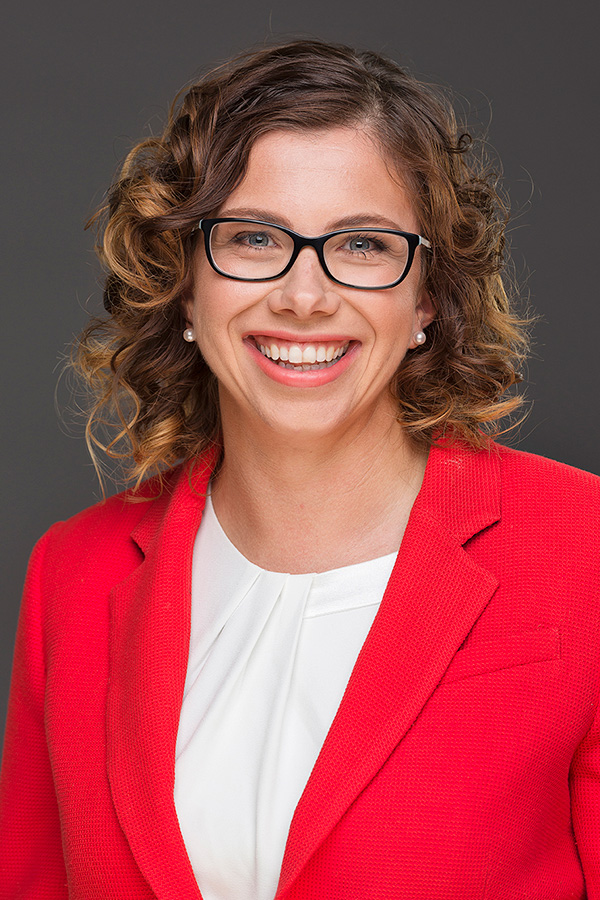
Amanda Rishworth MP
Image credit: alp.org.au
The new Minister for Social Services is Amanda Rishworth. Like Minister Collins, Amanda Rishworth has been a Member of the House of Representatives since 2007.
In her role as Minister for Social Services she will be responsible for ensuring people on the lowest incomes and those relying on income support can cover the basics. Her department is also responsible for housing support, ensuring delivery of support to those in need of affordable housing and homelessness services, including through Commonwealth Rent Assistance (for those in receipt of income support).
Unless these are moved around, and we expect some will be, Minister Rishworth will also have carriage and key oversight of a range of housing support programs and agreements, including:
- The National Housing and Homelessness Agreement
- The National Rental Affordability Scheme
- Building Better Regional Cities Program
- Housing Affordability Fund
- Hobart City Deal
- Reconnect
- Domestic and family violence
We see the current review of the National Housing and Homelessness Agreement (the NHAA) that is being undertaken by the Australian Productivity Commission as an opportunity to highlight how the agreement can deliver better housing outcomes for those in the broad private rental market, and for those renting in non-market rental housing (public and community housing). In our submission to the review we recommended introducing specific targets and outcomes in relation to security, health and safety, and accessibility for renting households.
As the Minister shifts to commence renegotiation of the National Housing and Homelessness Agreement - likely in line with the proposed National Housing and Homelessness Plan to be developed by the new government in consultation with states and territories - we hope we can brief the Minister on what we believe can be achieved through the agreement to deliver in particular greater security for people who rent their homes.
We also hope the incoming government will review their position on the level of income support millions of Australians rely on and ensure no one is left living below the poverty line, particularly after housing costs are taken into account.
Indigenous Australians Minister: Linda Burney MP
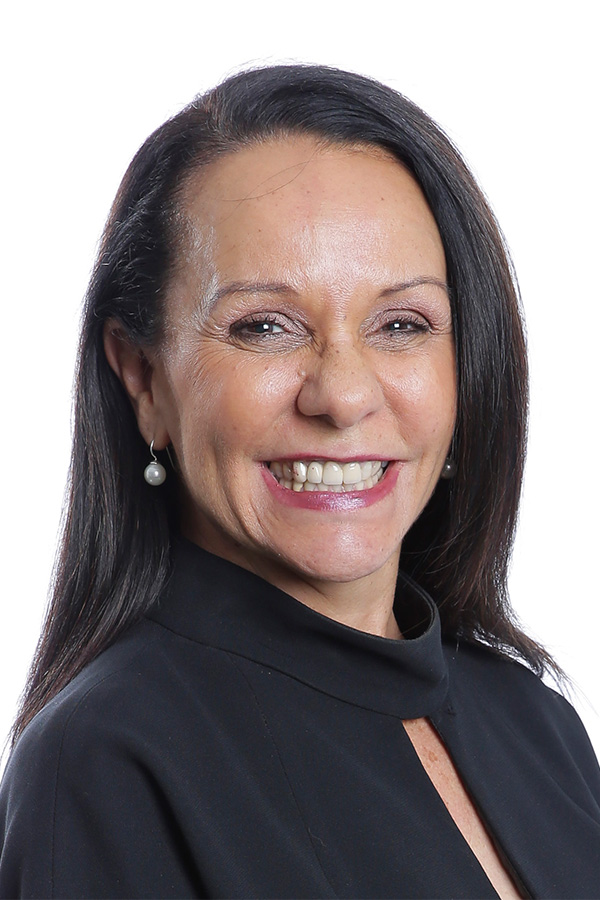
Linda Burney MP
Image credit: alp.org.au
Linda Burney, the first Indigenous person elected to NSW Parliament in 2003, and the first Indigenous woman elected to federal parliament in 2016, has been sworn in as Minister for Indigenous Australians. As the new Minister she's announced a priority on implementing the Uluru statement, which calls for enshrining an Indigenous voice to parliament in Australia's constitution and a Makarrata commission to oversee treaty and truth-telling.
Land and housing is identified as an 'area of focus' for the National Indigenous Australians Agency recognising adequate housing is crucial to support better health and economic outcomes for First Nation communities. Key housing problems facing First Nations communities include:
- homelessness (Indigenous Australians make up three per cent of the Australian population, but account for 20 per cent of all persons who were homeless at the last census),
- severe overcrowding,
- and very poor or substandard housing conditions.
While the states and territories as primarily responsible for delivering housing outcomes, the Commonwealth Government and the agency largely determine funding allocation for a range of key housing programs specifically addressing better housing outcomes for Indigenous Australians, including via the following:
- The National Housing and Homelessness Agreement (commencing July 2018)
- Separate funding contributions for remote housing to South Australia ($37.5 million) and Western Australia ($121 million) in 2018-19
- The Indigenous Home Ownership Program administered by Indigenous Business Australia
- The National Partnership Agreement on Remote Indigenous Housing (2008 to 2018)
During the 2022 election Labor committed to a spend of more than $300 million for remote housing, promising to extend the Morrison government’s National Partnership for Remote Housing Northern Territory (2018 to 2023) and negotiate to include homelands within the agreement, and to an additional immediate $100 million for urgent housing and essential infrastructure for homelands.
Minister for Climate Change and Energy: Chris Bowen MP
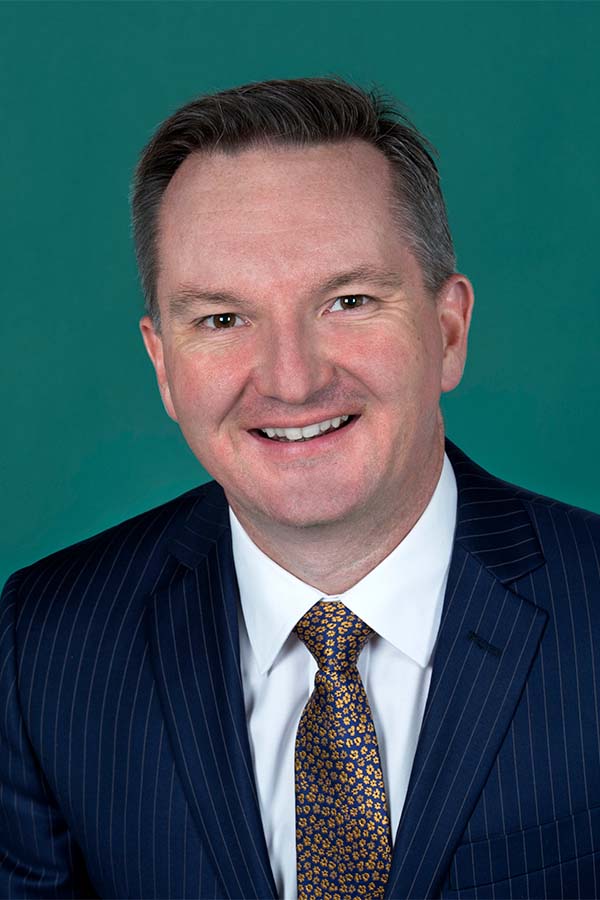
Chris Bowen MP
Image credit: alp.org.au
Chris Bowen, Member for the Western Sydney electorate of McMahon, has been sworn in as the Minister for Climate Change and Energy, taking over the portfolio from Angus Taylor. He's been the Shadow Minister since January 2021.
Labor has made a number of significant pledges around renewable energy. In relation to energy efficiency of buildings - an area we are keen to see movement on, pushing for a strong national framework to be developed around minimum standards on energy efficiency for residential rental homes - their focus has been on support for businesses to adopt energy efficiency measures via The Powering the Regions Fund and the upskilling of workers for energy efficiency upgrades to homes and businesses through the New Energy Apprenticeships program.
While in opposition, in March 2021, Labor committed to a National Housing and Homeless Plan. When asked about their platform in terms of how it might deliver energy efficient homes for renters, Labor pointed to the importance of the Plan, which they hope "will set out the key short, medium and longer term reforms needed to make it easier for Australians to have access to affordable, high quality private rental housing with secure tenure".
We hope to have the opportunity to brief Minister Bowen on the important role the Commonwealth Government can play via the Plan and through the renegotiation of the National Housing and Homelessness Agreement in developing and encouraging the implementation of a strong framework of minimum energy efficiency standards in rental homes. This would deliver healthier rental homes that cost less to heat and cool, reducing energy poverty as well as greenhouse gas emissions.
Attorney-General: Mark Dreyfus QC MP

Image credit: alp.org.au
As a community legal centre we also recognise the Attorney-General as an important portfolio. Mark Dreyfus, Member for Isaacs in Victoria, takes up the role of Attorney General.
Community legal centres are a vital resource, especially during times of hardship or crisis when they able to mobilise quickly, make and sustain connections, and support people within their local community. The Attorney General plays an important role in determining funding for community legal centres, many of whom rely on funding from both the NSW and Commonwealth Governments.
Immediately on forming government the Federal Labor Government announced a commitment of $12 million for community legal centres in NSW and Queensland to support people affected by devastating floods and fires. The Tenants' Union of NSW will receive $1 million over the next four years, along with Mid North Coast Legal Centre, Shoalcoast Community Legal Centre, Central Tablelands and Blue Mountains Community Legal Centre, Northern Rivers Community Legal Centre and Welfare Rights Centre.
These funds will help us extend our support to renters impacted by the floods to rebuild their lives, homes and financial security. We will also be looking at how we can better build a crisis resilient housing system as the housing crisis in regional areas worsens following the flood disaster.
Minister for NDIS: Bill Shorten
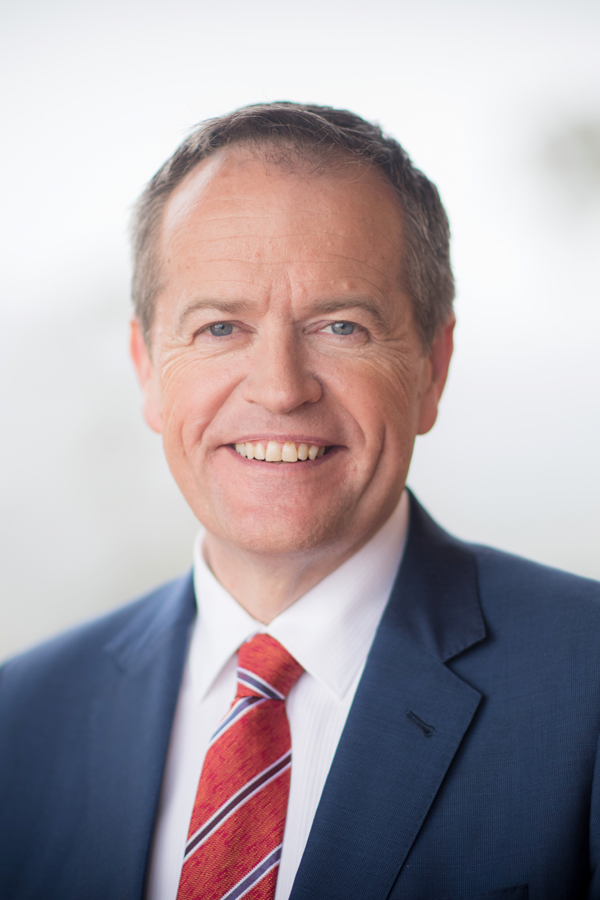
Bill Shorten MP
Image credit: alp.org.au
Bill Shorten, Member for Maribyrnong in Victoria, is the new Minister for NDIS and Government Services. The NDIS portfolio is another new addition within Cabinet.
NDIS aims to ensure people with a disability have access to the housing and living support services they need to enable them to live independently. Last year there was considerable attention on the NDIS scheme's poor oversight of specialist accommodation and lack of protections in place for some particularly vulnerable NDIS participants. We're also aware that under the program people with a disability can struggle to secure the NDIS funding for required home modifications to make their housing accessible and safe - including rental housing - and there have been problems with allocation and availability of appropriate Specialist Disability Accommodation.
Minister Shorten is well known for having worked on the NDIS in the Rudd government as parliamentary secretary for disabilities and children’s services. On being sworn in, he made a commitment to put people back at the centre of NDIS, acknowledging problems with how the scheme has been running.
Prime Minister: Anthony Albanese
It may be unnecessary to include the Prime Minister in this list, because of course the leader of the party will have significant impact on the government's policies. But we think it is worth noting in the context of his personal background which he referenced throughout the campaign and in his victory speech. This the standard to which he invites Australia to hold him and the incoming government - a standard with lots of potential!
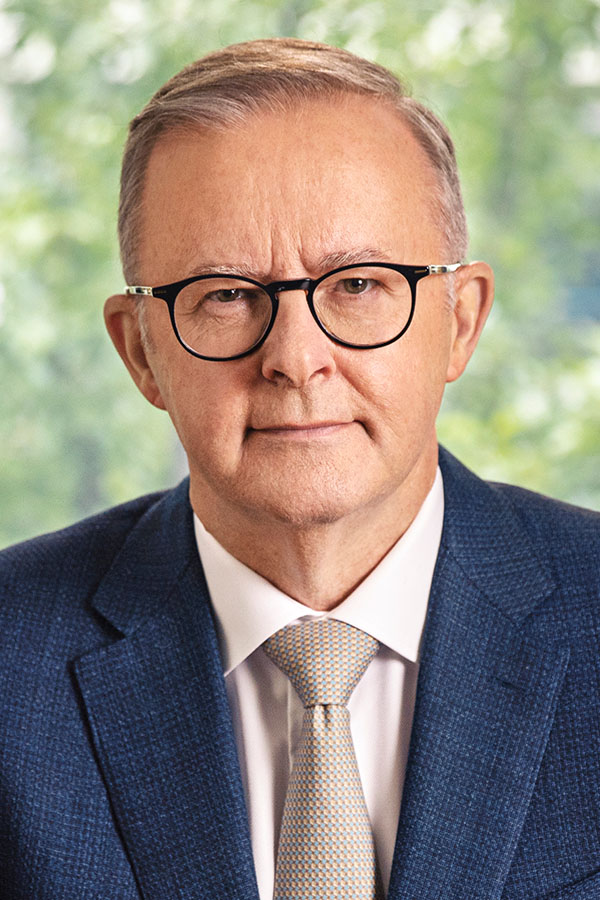
Image credit: alp.org.au
Eight years ago, as the Millers Point community was being put on notice of their impending eviction, Albanese wrote that "successful cities are not disconnected enclaves of privilege and disadvantage. They are diverse. Their people come from a mixture of backgrounds." and "that [selling off public housing and dividing cities] is out of line with the values of most Australians who understand that a community is only as good as the way in which it treats its least-advantaged members."
There are also two elements of his victory speech we think are worth drawing attention to and reflecting on throughout the coming term - the first (combining two segments) on growing up in public housing.
"My fellow Australians, it says a lot about our great country that a son of a single mum who was a disability pensioner, who grew up in public housing down the road in Camperdown can stand before you tonight as Australia's prime minister.
...
And I hope there are families in public housing watching this tonight. Because I want every parent to be able to tell their child no matter where you live or where you come from, in Australia the doors of opportunity are open to us all."
The second, his two principles for government:
"No one left behind because we should always look after the disadvantaged and the vulnerable. But also no one held back, because we should always support aspiration and opportunity. That is what my government will do."
Currently, we don't believe the housing system, public or private, is set up to meet those goals. Truly meaningful change will be a test of courage in the face of what is likely to be fierce opposition from various people who would prefer the system remain as it is.
We look forward to engaged conversation and productive debate as the new Ministries begin implementation of their commitments, especially around housing and what is needed to ensure the 8 million people who rent their homes in Australia are no longer left behind. And we wish a warm congratulations to all!
Teaser image used under Creative Commons licence from thennicke.



